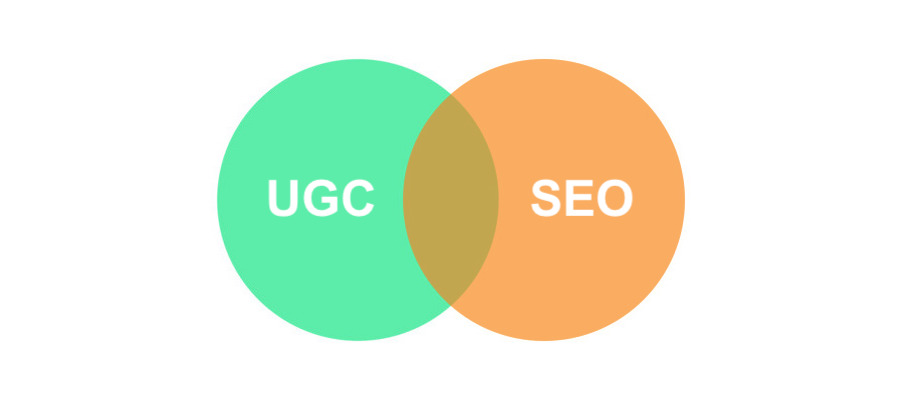How User-Generated Content Can Boost SEO for WordPress Sites

There are many factors that influence your website’s ranking in the SERPs. Naturally, one of the most important SEO factors include having a secure, accessible, mobile-friendly website – so having an optimized WordPress theme is a must.
But what you might have not considered so far, perhaps due to the sheer number of other SEO factors you needed to think of, is the importance of user-generated content. Experienced marketers and SEO experts know that nowadays a good WordPress SEO strategy must include UGC in order to create a winning combo to boost your site’s reputation and build social proof around your brand.
The result is a higher ranking website that’s trusted by the community as well as the search engines. However, maximizing the potential of user-generated content goes beyond simply publishing reviews on your site, or sharing a customer’s post on your social feeds.
That’s why today we’re exploring the power and potential of UGC as an integral part of your SEO strategy, and how you can use it to take your WordPress site up the SERPs.
Defining UGC and SEO

To start, let’s define the key terms that we’ll be wielding today.
User-generated content refers to all the content pertaining to your brand and its products and services that has been generated by the users and the community in general. In other words, what your customers say, write, and post about you across the web.
This includes UGC on:
- Your website
- Your social pages
- External social pages and profiles
- Tags and mentions
- Specialized review websites
- Search engine reviews like Google reviews
- In the media
- On other websites and blogs around the web
Basically, wherever and whenever people generate content about their experience with your brand, that’s UGC.
As you can imagine, this type of content has a lot of pull with the community, but also with the search engines.
On the other hand, search engine optimization is the process of driving traffic to a website through search engines. It includes numerous techniques and methodologies to boost a website up the search rankings, but also to drive unpaid traffic from various other sources.
It’s important to note that there are numerous important SEO KPIs that you should be monitoring and working towards, including:
- Organic Traffic
- Conversions Coming From Organic Traffic
- New and Lost Backlinks
- Keyword Rankings
- Bounce Rate
- Session Duration
- Page Load Speed
- Branded vs Non-branded Traffic
- Total Referring Domains
- Impressions
- CTR
User-generated content will play an important role in helping you maximize these KPIs.
Okay, now that we have the basics out of the way, let’s briefly talk about the relationship between UGC and SEO.
The Relationship Between UGC and SEO

User-generated content and SEO are deeply intertwined. Their relationship is twofold – it can be direct and indirect.
The direct relationship between UGC and SEO encompasses the processes and outcomes that directly influence your SEO results. Indirectly, UGC can enhance your SEO through external channels.
User-generated content can influence your SEO through:
- Content volume and freshness. Reviews, testimonials, comments, mentions, all of these boost the volume of relevant content on your site.
- Long-tail keywords and natural language. UGC almost always includes relevant keywords!
- Social signals. UGC on social media will help directly drive traffic to your site.
- Backlinks. Valuable UGC can attract links from other websites, which are a crucial ranking factor for SEO.
Indirectly, UGC can impact SEO through:
- User Engagement and Dwell Time. High-quality UGC can enhance user engagement, encouraging visitors to spend more time on your website.
- Brand Advocacy and Loyalty. Positive UGC, such as customer reviews and testimonials, can foster brand advocacy and loyalty.
- Reduced Bounce Rate. If UGC provides valuable information and answers users’ questions, it can lead to a reduction in bounce rate.
- Rich Snippets and Structured Data. UGC can enhance the likelihood of generating rich snippets in search results.
- Content Promotion. Encouraging user-generated content, especially through social media interactions, can amplify your content promotion efforts.
It is crucial to acknowledge that even with a well-structured SEO strategy and the inclusion of user-generated content (UGC), you should monitor your page for unauthorized changes. They could be easily mistaken for normal user activities, but hacking practices like website derangement can nullify all your SEO efforts. To maintain a strong online presence, regularly conduct website audits and optimizations to ensure your site remains user-friendly and search engine-friendly.
Now that you understand the relationship between the UGC and SEO, let’s get into the best practices.
Harnessing User-Generated Reviews and Testimonials
The first and one of the most powerful forms of UGC are the review and the testimonial. A review is a genuine customer opinion, and it can be positive or negative.
On the other hand, a testimonial is a positive review that you collect and present specifically for brand-building purposes. You need both if you want to boost customer engagement and build trust in your community.
Don’t be afraid of negative reviews, because they’re a chance to turn them into success stories. In fact, when you want to create highly engaging and shareable content, posting these success stories will be a great way to show your audience how much you care.
Either way, both reviews and testimonials are important for improving business search rankings directly and indirectly, as there are first-party and third-party reviews.
First party reviews are the reviews you publish on your own website and social channels. You can control these, so you can classify them as testimonials.
Third-party reviews are the reviews gathered across the web, on review websites, search engines, and third-party socials.
Leveraging User-Generated Social Media Content

The reviews, mentions and ratings you get on social media are equally important as the reviews on your website. In fact, you need to leverage these social media mentions and conversations surrounding your brand to fuel your website traffic, as well as your SEO.
Users have the ability to leave reviews for your business on socials like Facebook, Instagram, and other platforms. The great thing is that there are WordPress plugins that you can use to display reviews on your site and add them automatically. For example TagEmbed is a great way to display reviews from Google, Facebook and other popular sources. The plugin enables you to filter and embed social media reviews and mentions on your website to build social proof for your brand.
Site Reviews is a good choice for blogs and general business sites that collect their own on-site reviews or testimonials. The plugin makes it easy for users to submit new reviews and it allows you to pin and display your favorites first.
For Ecommerce sites, on the other hand, both WooCommerce and Easy Digital Downloads have product reviews built in. Both of these plugins use proper schema so your reviews will display in the SERPs.
Engaging User-Generated Blog Comments
Moving along, it’s important to always keep in mind that your blog page should serve a variety of purposes. Yes, it’s educational in nature, but you should look at it as a community hub as well.
This is the place where people come to read and learn, but also to share their opinions and experiences. That’s why you need to inspire people to create UGC on your blog content and to comment on all your posts.
The most effective way to do this is to simply produce quality, original content that’s useful and relevant to your readers. Good content inspires action, but you can also call for action directly in the conclusion, or even several times throughout the piece.
When you get some engagement and people start commenting on your blog, you need to check for plagiarism and possible scam activity. A lot of companies nowadays use automatic checkers to scan for copied text, and for example, the latest Grammarly statistics show that more than 50.000 professionals use the tool daily to check for plagiarized content.
You can use an automated checker as well to see if your website has attracted possible spam bots and scammers. A popular option is Akismet, though there are many spam filter plugins available.
Showcasing Visual User-Generated Content
Visual content is becoming increasingly important for SEO but also for brand growth and digital marketing in general. With the prevalence of visual social media platforms and the fact that WordPress websites are integrating more and more visual content, it’s important that you start leveraging visual UGC on your site and socials.
You can inspire your audience on social media to create photos and videos using your products, which will usually require a small incentive such as loyalty points or a discount on their next purchase. Don’t forget to include CTAs in your automated emails as well, for example when they receive the products.
Make sure to optimize all visual content with relevant titles, descriptions, and hashtags whenever you share them!
Because you are sharing content that real people have made, you have to make sure to protect any data they share with you, and that your website is secure. Hackers may try to inject fake UGC on your site in the form of visuals or pop-ups that look like UGC, but in fact it’s just spam.
This is called website defacement, and it’s important to monitor your page for unauthorized changes regularly to make sure that only real UGC is posted on your site. WordPress is a fairly secure platform, but you can take a few simple security steps to ensure your site stays safe.
Creating User-Generated Content Campaigns
Did you know? You can employ various methods to foster UGC content on your WordPress site to boost engagement and customer involvement. By strategically tailoring your approach, you can encourage users to leave reviews, share their thoughts, and interact with each other, targeting the right audience on the right platforms, all while utilizing some helpful WordPress plugins.
When considering the best approach for UGC campaigns, you should take into account the type of your services and products as well as the target audience. First, add some simple plugins that will extend the users’ ability to interact with your content in a meaningful way. These plugins might be a good start:
- Customer Reviews for WooCommerce: If you run a WooCommerce store on your WordPress site, you can increase engagement by encouraging customers to leave reviews about their purchases. By using Customer Reviews for WooCommerce, you can gather reviews in a more interactive and user-friendly way and automatically post them on WordPress.
- bbPress: You can use plugins like bbPress to streamline and facilitate the discussions on your WordPress site. If your site includes a bbPress forum, actively participate in discussions and encourage users to start new threads or contribute to existing ones.
Remember to use tools that are already at your disposal, like simple blog post comments. You can prompt readers through your content to share their thoughts and opinions in the comments section. Use the Comment Reply Email Notification plugin to ensure that users are alerted when their comments receive replies, keeping them engaged in the conversation.
Additionally, you can integrate Social Sharing buttons to make it easy for readers to share your content on social media platforms.
Once you’ve enabled your visitors to interact, you can set up email campaigns that will promote UGC creation by sharing newsletters or updates that encourage users to participate in discussions, leave reviews, or comment on blog posts. Consider publishing dedicated blog posts highlighting user-generated content, showcasing the best contributions from your community.
Make sure to monitor the submissions and moderate the content to showcase the best of the best. Always re-engage with the people who have participated in your campaign and acknowledge their contribution.
Running a dedicated campaign can greatly speed up UGC creation and help your SEO strategy.
Moderating User-Generated Content on Your Site
In the realm of user-generated content (UGC), moderation is paramount. While UGC can be an invaluable asset for your WordPress website’s SEO, it requires careful curation. Ensuring that the content aligns with your brand image and values is essential.
Regularly updating UGC not only maintains SEO consistency but also keeps your site fresh and engaging. Encourage users to share authentic experiences and valuable insights, but be prepared to moderate inappropriate or spammy content. Embrace constructive feedback while handling any negative reviews gracefully.
Utilize plugins and tools to streamline UGC moderation, and consider implementing a comment policy to set clear guidelines for users. Engage with your community and acknowledge their contributions, fostering a positive environment.
Remember, well-moderated UGC can strengthen customer trust, elevate your brand reputation, and significantly impact your website’s search rankings. By blending the power of user-generated content with strategic moderation, you’ll propel your WordPress site to new heights.
Without a doubt, user-generated content is a powerful and potent tool in your arsenal, and you can use it to boost everything from marketing to sales, and all the way to brand reputation and more. When it comes to your WordPress site and its position in the SERPs, it’s important to always keep in mind that Google focuses on the websites that the users trust.
These are the sites that have built up their social proof and that showcase genuine user success stories. Now that you know how to leverage UGC to maximize its direct and indirect potential, go ahead and use it to climb the SERPs faster this year and beyond.




UGC is really a great help to boost the reputation of a business. Testimonials and reviews say a lot about a business which is why having UGC on a website is a great way to show that your business is trustworthy. Plus UGC helps with the buying decision of an individual.
Intriguing read! Exploring the synergy between user-generated content and SEO for WordPress. Ready to implement these insights for growth!